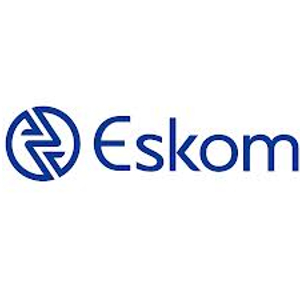Client Profile

Eskom was established in South Africa in 1923 as the Electricity Supply Commission. In July 2002, it was converted into a public, limited liability company, wholly owned by government.
Eskom is one of the top 20 utilities in the world by generation capacity (net maximum self-generated capacity: 41,194MW). Eskom generates approximately 95% of the electricity used in South Africa and approximately 45% of the electricity used in Africa. Eskom directly provides electricity to about 45% of all end-users in South Africa. The other 55% is resold by redistributors (including municipalities).
Eskom generates, transmits and distributes electricity to customers in the industrial, mining, commercial, agricultural and residential sectors, and to redistributors. Eskom sells electricity directly to about 3,000 industrial customers, 1000 mining customers, 49,000 commercial customers, 84,000 agricultural customers and more than four million residential customers (of whom the majority are pre-paid customers). Most of the sales are in South Africa, with other southern African countries accounting for a small percentage.
Additional power stations and major power lines are being built to meet South Africa’s rising demand for electricity. In 2005, Eskom embarked on a capacity expansion program, the largest in its history, which will increase its generation capacity by 17 120MW and its transmission lines by 4,700km. The capacity expansion program aims to both meet increasing demand and to diversify Eskom’s energy sources. In the six years ended 31 March 2011, the program has cost R140 billion (including capitalized interest). The total cost of the program to completion in 2018 is estimated to be R340 billion (excluding capitalized interest).
Eskom has approved and committed to:
•Building the Medupi and Kusile coal-fired power stations, two new gas-turbine plants, and the Ingula pumped storage plant
•Recommissioning three coal-fired plants that were previously mothballed
•Upgrading other existing plants
•Building new infrastructure, including new transmission lines and two renewable energy plants.
The completion of the Kusile power station in 2017/18 will constitute the last stage of Eskom’s committed capacity expansion program. There has been no approval or commitment to any capacity expansion projects after that.
Eskom Enterprises (Pty) Limited, and its subsidiaries provide lifecycle support and plant maintenance, network protection as well as support for the capacity expansion program for all Eskom Holdings Limited divisions.
Eskom Finance Company (Pty) Limited grants employee home loans, and Escap Limited manages and insures business risk.
Eskom’s corporate social investment is principally channeled through the Eskom Development Foundation, a wholly owned subsidiary of Eskom Holdings and a section 21 company.
Eskom’s head office is in Johannesburg and its operations are spread across South Africa. In December 2008, a small office was opened in London, primarily for quality control over the equipment being manufactured in Europe for the capacity expansion program.
Eskom Enterprises operates primarily in South Africa, but it has two subsidiaries that have an interest in electricity operation and maintenance concessions in Mali, Senegal, Mauritania and Uganda.

